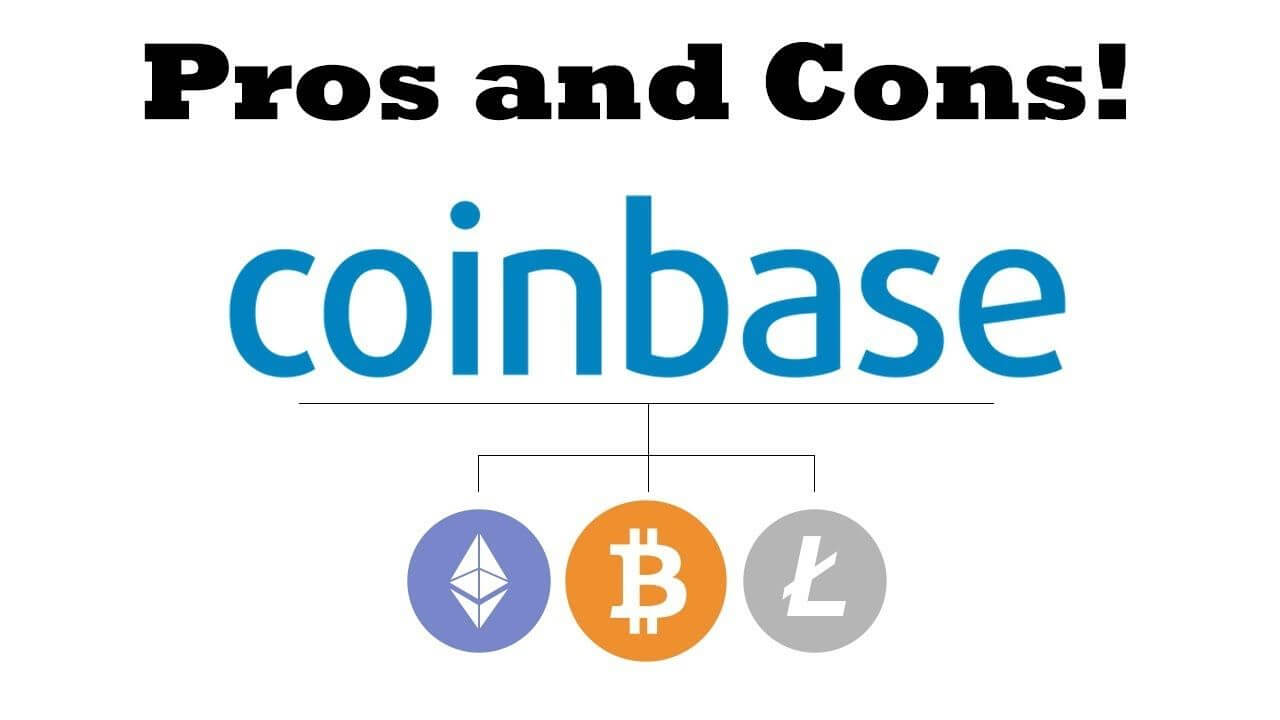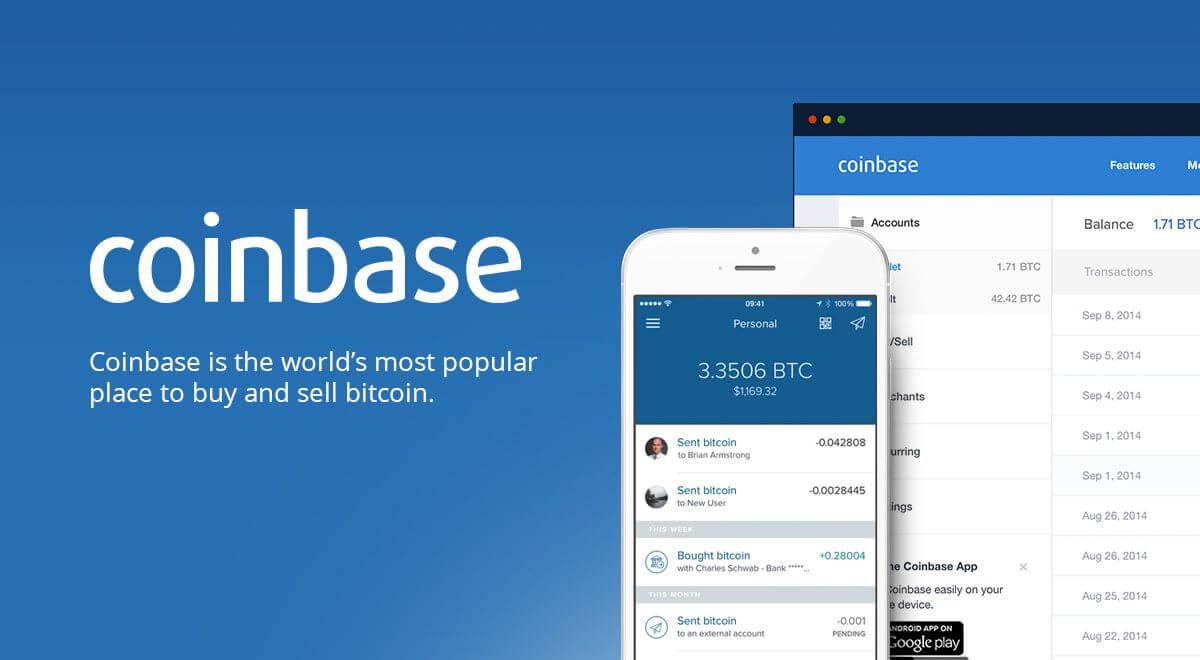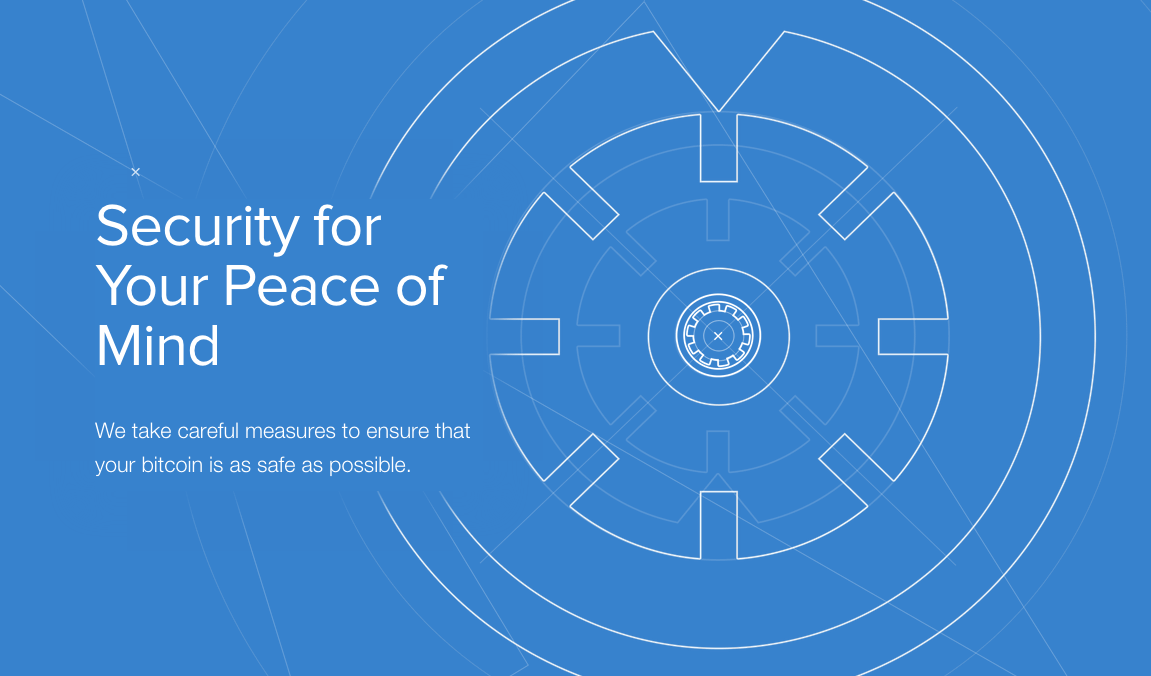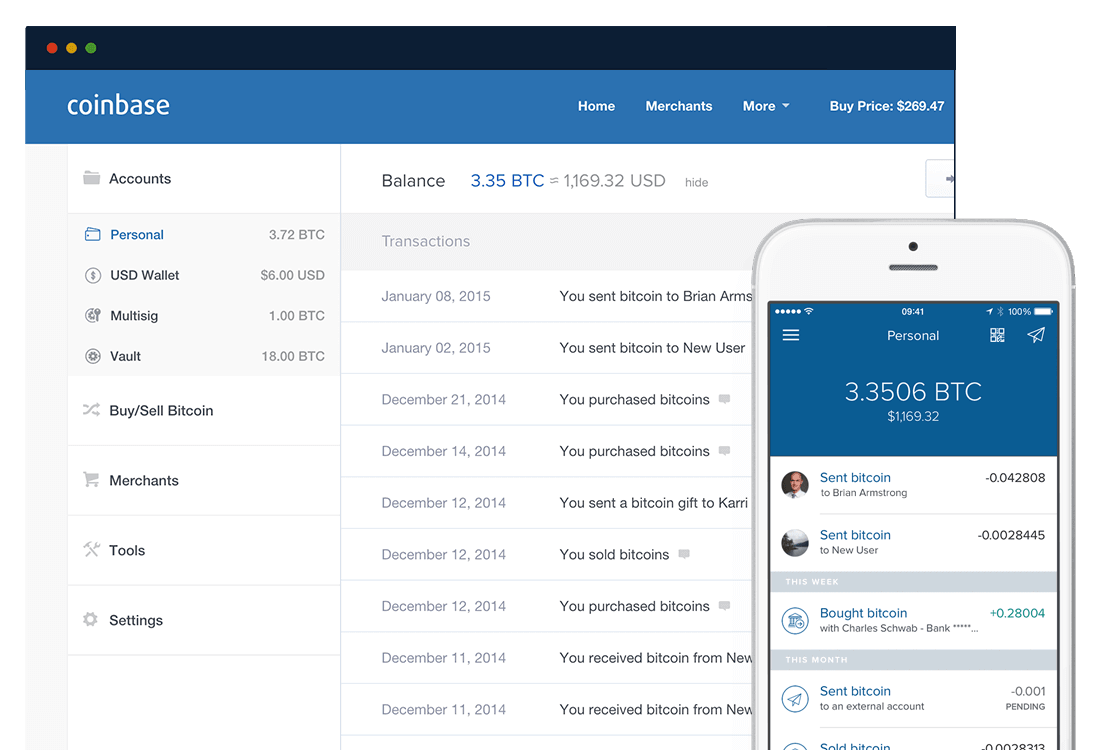
Bitcoin is slowly but surely establishing itself as a new asset class. The launch of bitcoin futures by CBOE in mid December brought the leading cryptocurrency closer to the mainstream.
So much has happened since the listing. Weiss ratings is reckoning with the ubiquity of cryptocurrencies with its announcement it will start issuing ratings for leading cryptocurrencies including the flagship bitcoin. The ratings will be based on “hard data and objective analysis” and help investors identify “truly solid cryptocurrencies,” the agency says.
Clearly, an investment in cryptocurrencies and especially on bitcoin is not one to be taken lightly. With a unit selling for more than $10,000, it is worth putting some thought into where you buy the digital asset. We look at the pros and cons of buying bitcoins on Coinbase.
Coinbase: A Brief Overview
Coinbase is the largest cryptocurrency exchange by market capitalisation with over $4 billion worth of bitcoin transacted on the platform. There are more than 13 million users, one of the largest in any exchange. In fact Coinbase has to shut the door for new registrations at one point towards the end of 2017 due to a huge influx that was threatening its systems.

So why is Coinbase so popular?
How Secure is Coinbase?
Coinbase has a strong track record when it comes to the security of customers’ deposits. In its over 6 years in existence, Coinbase’s virtual fortress seems impenetrable earning the trust of the now more than 13 million customers.
The heavy investment into its security comes as little surprise. After all billions have so far been transacted on the platform. It’s true some customers have lost coins but more or less by having their security credentials open to attacks.

In any case, 98% of customers’ digital currencies are in cold storage, beyond the reach of cyber attacks. The rest in online storage are insured against hacks, employee theft or fraudulent transfer according to Coinbase.
Among other security features, the Coinbase platform has two-factor authentication that is now a must for any serious exchange. 2FA as it is known adds an extra layer of security by requiring user to enter a code usually sent via SMS on top of the password.
This makes it harder for attackers who might have sophisticated tools to access personal data like identity and passwords to gain access. 2FA dramatically lowers the odds for successful attacks through identity theft and email phising.
Much as Coinbase is a secure platform, customers’ accounts continue to get burglarised. It is important to keep your login credentials safe and secure. Unlike traditional currency, digital currency transactions are instant and irreversible. The moment you lose them, you lose them forever.
Because they are by and large untraceable, bitcoin and other cryptocurrencies have become a target of choice for cybercriminals. The fact that they are largely unregulated makes them even more attractive. Securing your devices should therefore be one of your top priorities. Guard it like your own bank.
With the billions in its vault, Coinbase is a prime target for attackers. CEO Brian Armstrong admits this fact.
Reassuringly, the platform is staying a step ahead when it comes to securing accounts. It has even deployed machine learning algorithms to detect suspicious activity. Indeed, Coinbase’s security may exceed that of a typical bank.
It is worth remembering that Coinbase stores your actual private keys for your bitcoins on your behalf and instead gives you a password. Although the objective is to make the process of storing bitcoins easier, it is also an added risk. In the arrangement, the security of your bitcoins very much depends on how well you secure your password.
Coinbase Insurance
On top of the high-tech security, US wallets are insured for up to $250,000 giving that much needed peace of mind to users. The insurance does not however cover unauthorised access to your accounts.
Intuitive User Interface – User-friendly Coinbase
Coinbase easily impresses with its beautiful user interface. Newbies will have no problem navigating the platform with its well laid out features. If you are simply into buying and selling cryptocurrencies like most users, Coinbase is one of the top options for you.

If you switch regularly between devices, you will find the Coinbase app equally functional. Most of the features in the main platform can be found in the mobile app with more or less the same interface. If you want to stay within reach of your account, you can download the Coinbase app on Google Play Store or on the App Store for iOS.
Recurring Transactions
Coinbase’s recurring transaction feature allows you to buy, sell or transfer bitcoins at a certain future time on a recurring basis. This new feature means you can take advantage of low prices even when you are not signed in to the platform. It is worth noting that this feature was previously available but on a weekly and monthly basis.
Coinbase Support
Coinbase has a typical response time for customer queries of 48-72 hours. Obviously, it is not the best out there but it is to be expected from any entity with such a huge customer base. For new accounts, the 24/7 phone support should resolve most of the issues new customers might have.
Customers can also send their queries on email. Expect some canned responses if you are sending your first request
The FAQ section is one of the most comprehensive and you should probably make a stop here first.
There are mainly complaints about Coinbase’s customer support on online forums. There is certainly room to improve in this area.
Coinbase Buying/Selling Limits
Coinbase allows some of the highest buying and selling limits. Users who have linked their credit cards can purchase up to $1000 worth of bitcoin per week. You can transact as much as $50,000 per day but you have to be a fully verified US resident to do so. This involves having your debit and credit card as well as well as identity verified on the platform.
Limits can also vary depending on the payment methods you elect to use. Limits are much lower if you are using credit cards for instance compared to ACH transfers.
Coinbase Payment Methods
Wire transfers are the main payment methods on Coinbase. This is a cheaper option but it will take about five days to arrive. You can place your order once your account is funded. Credit and debit cards are much faster but they come with higher fees. PayPal is available as an option but only for sellers.
Most transactions attract a 1% fee. Credit card transactions are charged at 3%-3.75%.
Strict KYC and AML Policies
Coinbase implements Know-Your-Customer and Anti-Money Laundering policies strictly. The exchange is better know for regulatory compliance. By and large, this is tied to the huge investment the platform has so far attracted.
As such, you have to verify your account if you are to transact any meaningful amounts on the platform.
For diehard bitcoiners, this is against one of the most fundamental principles upon which cryptocurrencies were founded; to confer total anonymity and become a truly decentralized currency. Some argue that exchanges like Coinbase are effectively moving towards centralizing cryptocurrencies.
There are also claims about Coinbase monitoring individual transactions. Using your bitcoins for activities such as gambling may lead to the freezing of your account.
Conclusion
Coinbase’s strong point lies in its robust security. The high volumes being transacted means you can get the most competitive bitcoin prices here. If you must keep your bitcoins online, then Coinbase would be your best bet.
The downside is the fact that you do not have control over your private keys. There is also the lack of anonymity on the platform that a good number of bitcoiners are looking for. For a more in-depth review, try our Coinbase review.

